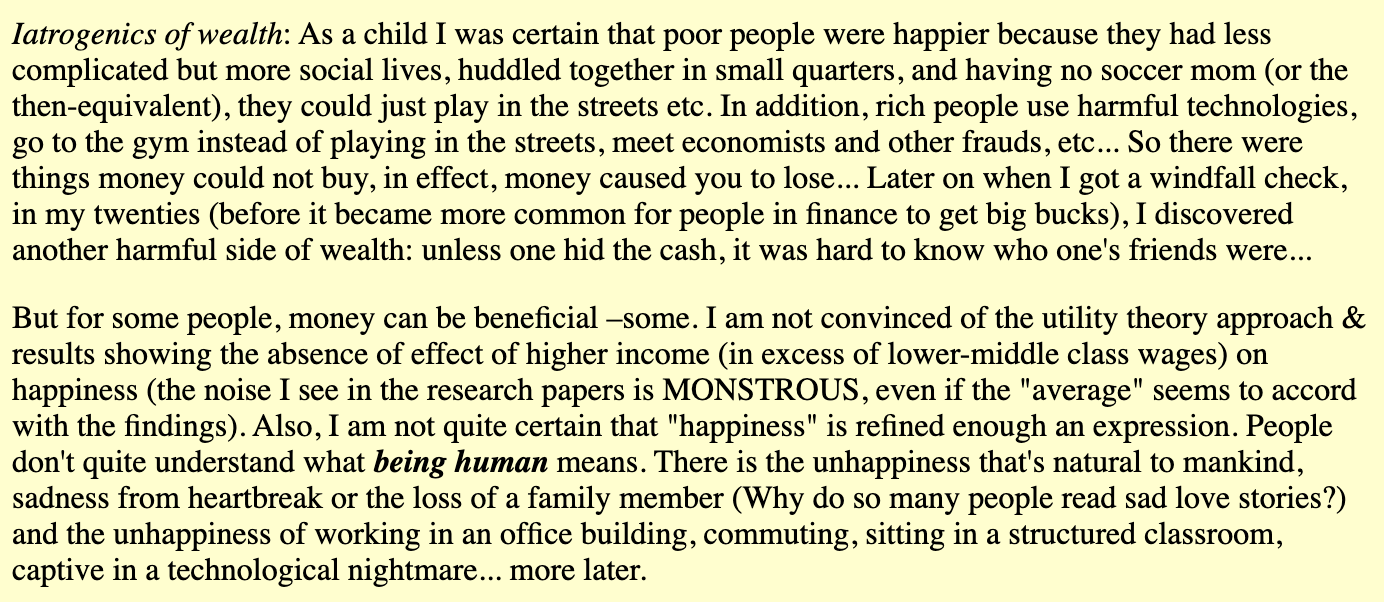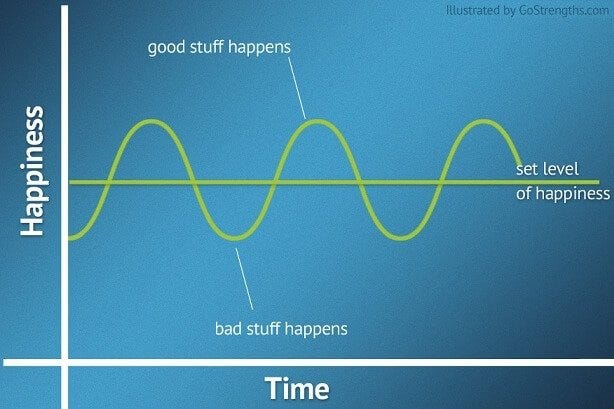My flatmate works in finance. Some of the people at his work are very wealthy.
He once overheard one of his wealthy colleagues bemoaning the size of his yacht.
Yep you read that right.
This rich guy was complaining, saying his yacht might as well have been a £10.99 inflatable dingy when compared with the yachts owned by people higher up than him at the company.
I couldn’t really believe that story. But it made me think.
Within the top 1% of earners, inequality must be even more sharply felt than in other parts of society. Let’s look at why that might be.
Say you earn £30,000. Chances are the people directly above and below you at your workplace are earning comparable amounts.
Your line manager might be earning £40,000, and the person below you might be earning £20,000. It might look something like this:
That’s a fairly standard set up.
Each salary is 1.something higher than the one below it.
Now let’s look a look at the top of the company:
Now this is obviously a crude and extreme example which doesn’t take into account the intricacies of salaries, bonuses, equity in a business etc.
But it is illustrative of how sharp things gets near the top.
Your line manager could not conceivably be on a £15 million salary while you’re there on £30,000.
At the top, however, the owner could conceivably be worth 100 times more than other senior people in the business who are extremely well off themselves.
I’m starting to feel bad for that guy and his tiny yacht!
As your wealth grows, in normal society chances are you’ll be exposed to richer and richer people, perhaps feeling less secure as you climb the ranks rather than more.
This sharp inequality at the top is a classic example of more money more problems, which is a banger.
Iatrogenesis
Iatrogenesis is a cool concept I’ve been reading about for the past year or so.
I think more people should know about it.
Iatrogenics is when a treatment does more harm than good. Iatros means ‘healer’ in Greek, so iatrogenics means something like ‘caused by the healer’.
Some iatrogenic events are obvious, like if a doctor amputated your left leg when you’d gone in with a problem with your right knee. Other examples like drug side effects, can be harder to spot.
But iatrogenics happens a lot.
Iatrogenic events can occur outside of medicine too. For example, interventionists went through a phase of thinking it was a good idea to bomb parts of the Middle East in the name of democracy. A bit like a doctor who thinks it’s a good thing that a prescription of drugs has brought your cholesterol levels down, not realising they’ve put you into a coma.
Iatrogenics and wealth
Getting rich is supposed to make you feel better isn’t it?
That’s partly why you’re reading this newsletter.
But what are you actually trying to cure? And what might the side effects be of your chosen treatment (of getting rich)?
Well, as we’ve seen, having too small a yacht might be one bit of harm.
Have you ever seen first-hand these weird problems that rich people seem to create for themselves?
I’ve seen rich people get genuinely annoyed about what type of white wine they’re having with their meal. They also don’t seem to ever enjoy wine, they just seem to enjoy flaunting their knowledge of expensive wines…
I’ve seen rich people turning their noses up in a place that’s a bit beaten down. Cheer up, you’re just getting breakfast.
Nassim Taleb has the following to say on this topic:
We’re kind of flirting with a classic question here: does money buy you happiness?
It’s hard to know really what happiness means and it’s definitely not a normal human characteristic to be happy all the time.
The Hedonic treadmill
Now it’s time for another good concept which I mentioned on the Instagram page: the hedonic treadmill. This image sums it up:
The idea of the hedonic treadmill says that despite good and bad stuff happening to you, your happiness will always revert to the same baseline.
Lived experience tells me this is pretty accurate. I’ve had good things and bad things happen to me that have left me feeling neither particularly good nor bad, especially after a short period of time.
Lots of people apply this theory to the idea of money, saying that beyond a certain point, any increase in wealth will not result in increased happiness.
I don’t buy that.
Going from £0 a year to £50,000 certainly would make you happier.
Maybe going from £50,000 to £150,000 doesn’t make much difference. Maybe going from £150,000 to £500,000 doesn’t make much difference.
What about £7 billion?
You can explode the idea that money doesn’t buy happiness by putting it under extremes.
And going beyond that, it surely depends on what you define as happiness, and on the individual who is getting the money.
I agree with the sentiment that spending money on progressively more expensive sh*t won’t make you happy. That’s how you go from poor people problems to rich people problems.
But I imagine never having to go into work, never having to bend to fit the some corporate structure, never having to bite my tongue in a boring meeting, would in fact make me pretty f***ing happy.
Taking action
Always like to sign off this newsletter with actions we can take.
Given these thoughts it seems as if the action is: build your wealth quietly.
Don’t get suckered into rich habits and rich BS. Being quiet helps this.
Sell your stuff. All you really need are clothes, furniture and a few essential/personal items. Anything extra can be sold. That will make you some money, free up space and reduce your baseline of “stuff that you need” which will make you robust to the possibility you could lose it all. Now I’ve got no stuff so what’s the worst life can do to me?
Don’t be tempted to flex. Think about the hedonic treadmill when you want to buy some random thing.
Keep in touch with the best and cheapest things in life.
You don’t want people laughing at your jokes because you’re rich, hanging around with you so they can get into cool places, or expecting you to pick up the bill.
Just go about your business, quietly.
I’m also reminded of these quotes from the Instagram page:
That man is richest whose pleasures are the cheapest - Henry David Thoreau
It’s easier to accumulate wealth if you don’t live in a high status neighbourhood - Thomas Stanley
The fastest way to become rich is to socialize with the poor, the fastest way to become poor is to socialize with the rich - Nassim Taleb
Wealth consists not in having great possessions, but few wants - Epictetus
Hope you enjoyed this week’s newsletter. Shoot me a DM and let me know what you think and if you have any feedback. I’m still circling in on what I feel this newsletter should be.
Have a great week.
Since you got all the way to the bottom of this newsletter: here is a Google doc with five things I thought was cool this week.








